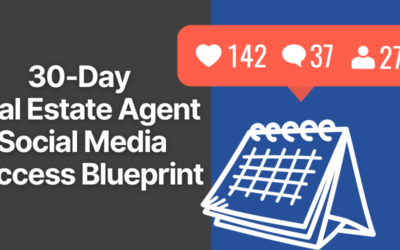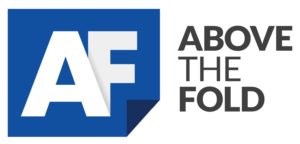You create an ad on Facebook, spend the time choosing the perfect targeting, make it look great, and hit the button to go live and instead of going live, Facebook disapproves of your ad. Telling you you’re discriminating, circumventing policies, or some other vague nonsense that doesn’t actually tell you why you’ve been disapproved?
You’re not alone and most of the time, not at fault.
Thousands of real estate agents, across North America, experience this issue often. Some have even stopped advertising completely, because they can never seem to get an ad approved and even had their ad account banned entirely.
So let’s take a look at why ads get disapproved and what you can do to change it. . With the right tweaking and leverage of the appeal process you can get almost any real estate ad approved.
Discrimination | Special Housing Category
The most common reason for agents’ ads being disapproved is because Facebook deems them to be discriminatory in nature. This is the simplest fix. Facebook requires all housing focused ads to have the Special Ad Category option turned on.
This severely restricts your ability to target. The good news on this is that after having tested it extensively, our average cost per lead hasn’t been impacted.
Stemming initially from some issues in California where people were caught using the Facebook ad platform to exclude people of specific ethnicities. Facebook launched Special Ad Categories. It prevents you from being able to to target it in way that could potentially discriminate against people.
In some cases, the changes are unnecessary (minimum 15 mile radius in geographic targeting is excessive, especially in cities) but overall the policy is needed to make sure everyone has an equal opportunity to find their next home.
Pro Tips for working with special ad category:
- You have to do 15 mile radius but there’s no rules about where the centre point of your 15 miles has to be. For example, a client that only worked the waterfront condo market, put 14.5 miles in the ocean and only targeted the land right on the coast. Look for opportunities to leverage the local geography to your advantage.
- Use your copy to narrow down to your ideal clients. If you want to target Aurora homeowners but 15 miles includes 5-6 other towns/cities in the area, put the name Aurora several times in the ad copy in the first parts that they see. It quickly leads to people from Aurora being the more likely to respond instead of the surrounding areas.
- Retarget video viewers of non real estate ads. If you run targeted ads for non housing specific content, especially with video – you can retarget anyone who watched the video with your housing category ads.
Special ad category system is in place for a very good and valid reason. Their review system can just be over zealous in rejecting things even close. For example, our agency is called Just Sell Homes, almost every ad we ever run gets rejected for being housing the first time we run it and will get through on appeal after.
Don’t panic if you see a rejected ad for discrimination. The odds are, you didn’t do anything actually wrong.
Here is what Meta says falls under housing category ads:
- Sale, rental or temporary housing listings
- Homeowners insurance offers, including as part of insurance bundles
- Renters insurance offers, including as part of insurance bundles
- Mortgage insurance offers, including as part of insurance bundles
- Financing options, including mortgage loans
- Home equity or appraisal services
- Real estate and house hunting services
- Aggregator services
They say “and more” to cover themselves in case more things come up they may have missed.
They specifically state that tips related to homeownership or home buying do NOT fall under housing category.
Is your non-housing ad getting rejected for housing?
Do you create a lot of content? Especially community focused content or educational content? These often should not be subject to housing category ads. It is hard for Facebook to distinguish between an ad for housing and an ad for educational content around housing coming from a real estate agent or brokerage.
Even though they say tips related to homeownership or home buying are allowed to not use housing category restrictions, they’ll still reject it the first time. It’s frustrating, we get it, we typically have people at our company on with Meta support every single day getting them to fix errors.
Be prepared for every legitimate non-housing ad you run to get rejected initially. It becomes a time consuming process to run ads.
It’s because it’s not a person that reviews the ads to determine if they comply with housing category rules. It’s an algorithm. They’ve set certain criteria that if it sees them, will reject it for being a housing ad.
There are ways to increase the odds your ads aren’t rejected though.
Be careful how you write the ad that shouldn’t have the housing category turned on. Avoid terms like real estate, housing, homes, Realtor, real estate agent, etc… These are all trigger words to cause the system to automatically reject the ads.
Note: Removing those types of words and turning off the housing category for housing ads is NOT recommended. It’s more likely to result in your account being banned than you getting one past Facebook’s review system.
If you’re doing agent recruiting, it’s also important to note that not only will you get hit by housing ads potentially, they may also flag you for employment ads. We’ve found employment an easy one to avoid since Realtors aren’t employees. The quick change is focusing on business instead of career. For example: Take your business to the next level instead of take your career to the next level.
How are Facebook ads reviewed?
Facebook doesn’t release the exact process specifically so people aren’t able to easily find loopholes. Based on experience and speaking to other marketers here is how it seems to work:
A combination of human based review and algorithms at work. With millions of businesses of advertising on Facebook, it would be impossible to manually review every ad and get them approved in a timely manner.
This means Facebook uses algorithms to detect compliance problems. They’ve trained it to identify issues in ads. This is often what causes an ad to be disapproved when it shouldn’t. The machines aren’t perfect and something you have in your ad may have triggered the algorithm to disapprove.
Sometimes ads can be approved and then 24 hours or sometimes longer it gets disapproved after it was already running. When this occurs, it’s likely because a human reviewed the ad and saw something the algorithm may have missed. They have criteria for how people interact with your ads that can cause a human to review it. If enough people are hiding or blocking your ads they’ll look at why. This can cause approved ads to get rejected.
The review process has become significantly less advertiser friendly since Covid-19. They’ve become even more reliant on algorithm and removed more humans from the process.
So while it can be frustrating at times, just keep in mind that it’s an algorithm often disapproving your ads. That’s why it often doesn’t make sense.
If you get assigned a Meta Advertising Pro, don’t expect them to actually help with support related issues. They’re just there to get you to spend more money on your account. The odd rep if you go through enough of them can offer some helpful tips if you’re a beginner in running ads. Most of the time, it’s not worth the time to engage. From a disapproved ad perspective, they’ll just tell you to go to support or they’ll initiate a support case for you.
History Matters
Trust is earned.
This is true in life and with Facebook ads. The more you advertise with Facebook and the more your ads get approved without issue, the more trust you build up. The faster your ads get approved and the less likely you are to have disapproved ads.
It doesn’t take too many violations and bad ads to knock your trust score down so you should guard that. Important to note, there’s no official trust score they release but you can go to Account Quality in your ads manager to see if any recent issues.
Be careful about who you let into your ad account and make sure you have 2 factor authentication turned on so you don’t get hacked. If you have an issue of rejections and issues, the odds are you’re going to continue to. We have even seen ad accounts get rejected for “associating with untrustworthy accounts.” Guard access to your account to people or companies you trust.
If you’re working on a new ad account, keep it simple at the beginning. DOn’t ramp up too quickly. Run just a couple ads at the time and keep them relatively simple. If you ramp up quickly and start pushing the boundaries of what’s allowed, they’re more likely to shut you down.
Interestingly, Facebook reviews ads that no longer are running in your account too. We’ve seen it happen where ads that ran a year ago are disapproved today. If this happens I’d recommend fixing or deleting the ad even if you have no intention of that ad ever running again. The less ads marked “Rejected” in your account the better.
If you go too far past the line Facebook may even ban your ad account altogether. Then it’s not as simple as just opening up a new one and starting over. First, you’ll have to get approved to open a business manager to get new accounts and then you’ll also have to get a new credit card.
Credit cards, personal accounts, email addresses, phone numbers, and business pages attached to a banned ad account will often trigger a ban of any new ad account they’re associated with.They call it circumventing their systems if you try to start back up while they have an old account shut down.
Facebook has Prohibited Content
Facebook has many categories they consider prohibited content. From drugs, weapons, violence, adult content, and a whole host of others. Most of them are pretty obvious.
You’re advertising housing though, why should this matter?
Depending on how you’re wording your ads, it may trigger the algorithm to ban your ad automatically.
For example, during the Bitcoin craze in late 2017, a lot of people were running Bitcoin ads on Facebook. It’s all I saw every time I logged on. People made a lot of money but, a lot of people also took advantage of people because of the massive hype around it.
Well, during this time, I launched the first episode of Over a Pint with Tim Hudak. During the episode we talked very briefly about the future of real estate and how blockchain technology may impact the industry.
Since Facebook banned all ads related to cryptocurrency, they added keywords that would trigger automatic disapprovals. Obviously blockchain is one of those words. My ad was banned for “promoting prohibited financial services”. Obviously my ad did not do that.
I appealed this decision. But the results of Facebook’s ad review was the same. So I appealed again. Once again, Facebook came back and said it was disapproved for promoting prohibited financial services AND this was a final decision and there was nothing else I could do to change this.
So I appealed again, and then again, and then again. I pled my case every time. Do you know what happened after 5 appeals?
My ad ran on Facebook. An actual person finally reviewed the ad and saw that it was a legitimate ad that did not sell any financial services.
Now in 2023, that many appeals typically aren’t allowed. You have to jump on the live chat and try but usually once they say final decision now, they actually mean it. In that case, we delete the offending ad from the account and try to create a new one.
Ad Copy
Words matter.
What you say and the context in which you say it comes into play when running an ad.
You’ll often hear people say that you can’t include “You” and “Your” in your ads because they’ll get disapproved. This is only partially true. Years ago you and your became trigger words for the algorithm. They found that including you/your was more likely to be used by people making you feel bad about yourself. Fo example “Do you want to get rid of that belly fat?” would make someone feel bad about themselves. Facebook wanted to limit that. Their system is smarter now and you can use you/your. The goal is just to use them in more positive ways.
What Facebook is really after is that you are not calling out your audience directly. That creeps them out. So if I targeted divorced men over 40 with an ad for buying a home I can’t word the ad as “You’re a divorced man over 40, and now it’s time to buy your next home”. That’s calling out the audience too directly and more likely to result in disapproval.
Instead, you would have to word it more like this: “Divorced men over 40 face many challenges and buying a home can be one of them.” and then add a call to action that’s not specific.
We run ads all the time though that say things such as “Thinking of Selling Your Home? Download our guide on selling your home to help you get the most money”. Those get approved every time.
The context around how you use language matters.
You’ll also want to avoid making big promises. We had a client who personally invested $39,000 into the Toronto Pre-Construction Condo market and turned it into over a million dollars in equity in only a few years. So we ran an ad basically saying “I’ll show you how to turn $39,000 into a $1,000,000 by investing in Toronto Condos”.
While that’s a big bold claim, he had done it. It wasn’t unrealistic. It’s too specific and doesn’t mean it can be replicated. So Facebook disapproved of it. We had to change the wording to focus on the idea of “I invested $39,000 in the condo market and today have over a million in equity. See how I did it” and that linked to a video of him explaining how.
We didn’t promise we could do it for them, we simply explained the process of how it can be done.
Another big one with the copy is that Facebook will punish you for poor grammar, improper use of punctuation, or using offensive language. You can’t hide offensive languages behind symbols either, Facebook is smart enough to figure that out. They know that shit and sh*t or s**t is the same thing.
Landing Page
This is the part where a lot of people get caught without realizing it. Facebook is NOT just looking at your ad. They are also looking at where you’re sending people.
Your landing page could just as easily get your ad disapproved as the ad itself.
Make sure your landing page is very clearly offering the same thing as the ad. No bait and switches are allowed. They could even end up blacklisting your entire domain if you do this too often.
Facebook also wants you to include a privacy policy on your landing pages so users know how their data will be used. If you don’t have a privacy policy on your website, this should be moved to the top of your to do list. It’s very important.
Too many pop ups, redirects, or attempt to hide the domain they’re being sent to will all potentially cause your ads to be disapproved.
The other most common reason your website/landing page will get your ad rejected? If it’s http and not https. Facebook only wants to send traffic to secure domains.
Lead Ads
Screw landing pages then, I’ll just use a Facebook lead ad and get them to opt in on Facebook!
Oh wait, Facebook reviews those too. I’ve seen countless ads get disapproved where the ad itself was perfect but the lead ad form was the issue.
For example, we ran a simple ad for a client that was basically “Looking for detached homes in TOWN?” To help send them the right list of homes, we added a custom field to the Lead Ad form that asked them their budget. This was flagged and disapproved with Facebook immediately.
Financial information is one Facebook is very protective of.
It took a couple appeals and a live chat with Facebook representative to make them see that asking their budget actually provided a better user experience and wasn’t an invasion of their privacy. Eventually Facebook allowed the lead ad with the budget question in but it took time to get them to “see the light”.
Never ask for more personal information than you need and anything financial related will get flagged pretty quickly. If you don’t have the time or desire to deal with Meta support, which is very frustrating, then it’s better to avoid asking that altogether.
Just like with landing pages, the link you include after they opt-in, to redirect them to, will also be evaluated by Facebook. Basically any link you include at any stage in the ad process will trigger a review if they think it could potentially be harmful link to a Facebook user.
Creative
So, your landing page is perfect, the text doesn’t contain any issues yet you’re STILL getting disapproved? Might be the image.
In real estate ads, there’s usually only one reason images will get an ad disapproved. That’s due to too much text or misleading text in the image.
Facebook frowns on things like before and after photos, mainly for weight loss industry, but, for example, if you’re including before and after with staging, it’s possible it will accidentally gets caught in the Facebook algorithm. But if appealed, you should win it.
Facebook used to have a rule that an ad cannot have more than 20% text in it. Now that rule is gone but they still want you to follow it. Ads with little to no text will get more reach for less money. The more text you have the more you’ll pay to show it to less people.
Usually if an ad is disapproved because of text in the image, it’s not because of the amount of text but rather, what you said. If any of the issues in the copy we mentioned above, occurs in the copy in the image, Facebook’s algorithm can catch that too.
If you’re using text to mislead people that will also cause issues. An example would be if you included a picture with a play button and wrote “click to play” and when they did it actually redirected them to your website to watch the video. That’s misleading to the user and Facebook will ban it.
Also, Facebook can read the text in an image, so you can’t get around issues with words by trying to bury them in the image of an ad.
Screenshots can also be problematic. We ran an ad of an email from a client that was raving about our service, with the clients permission, it was a screenshot right from gmail interface. Because the screenshot included the reply and forward buttons, Facebook said the ad was misleading because it looked like the image had “clickable elements”. Once we removed anything from the screenshot that looked like someone could click on it, the screenshot ad was approved.
How to word your appeal
You’ve checked everything and you can’t understand why your ad is still being disapproved. Now’s the time to appeal with Facebook directly. There’s no secret sauce to get your ad appeal approved. The first round all you can do is hit the review button.
If you do that and it’s rejected, you can try live chat with support. This option is not always available so if you go to start it and it’s not there, it’s not you. It’s just not available at the time you’re looking for it.
No matter what you say at first, they’ll just repeat that you get rejected for whatever reason they already told you and that you should familiarize yourself with the rules of running Facebook ads. I recommend saying that you have gone over the rules, and state why what you’re doing does not violate them.
The key is to be polite, explain why you think the ad doesn’t violate their policies, and finally prove to them you’re a legitimate business in good standing. You can do this by telling them things about how long you’ve been in the business and link to your website.
Once and a while the person in the chat will agree with you and get it approved very quickly on the spot. That’s the rarest outcome. Most of the time they have to escalate to an “internal team” for review and you hear within 24-48 hours. Typically this will get your ad reversed assuming you aren’t actually breaking any rules.
Stuck in Pending Review
Sometimes, your ad is neither approved or disapproved. It sits as “In Review” forever. Facebook officially says most ads are reviewed within 24 hours but it can take longer. I usually give it 48-72 hours before worrying that it’s stuck.
Facebook is a software platform, a MASSIVE one, mistakes and glitches happen. It’s built by humans and humans make mistakes. Sometimes ads just get stuck. Not much you can do about it besides either trying to make changes and re-submitting for review or just starting over with a new ad.
After a 48-72 hour period we typically will duplicate the campaign, and kick off a new review period. Keep in mind if you leave the original here and the duplicate in review they can both still get approved and run together which means spending twice the budget you planned to. So either pay attention closely to when something is approved/rejected or delete the original.
Preventative Measures
At the end of the day, what Facebook cares about is that their users enjoy their experience on Meta platforms. They want it to be a beneficial experience for users. If it does, then they’ll spend more time on Facebook, which means more ads that can be showed to them and more money that Facebook makes.
So keep that in mind when advertising. If you lead with value and always think “is this good and positive for the people I’m advertising to” you’ll almost always be fine.
Mistakes happen though. This is why we recommend going to business.facebook.com and setting up a business manager. On a business manager you can set up multiple ad accounts, on your personal profile you can’t.
Just in case your ad account gets shut down, you have a backup ready to go.
Early on, try to go overboard with compliance. Don’t even run ads that shouldn’t be housing that will get rejected for housing. Keep them all housing for the first couple hundred in ad spend. The more trust you build with Facebook, the less time your ads will be reviewed before going live and the better responses you may get on appeals. So take the time to build that trust with Facebook.
Facebook is constantly changing, if you’re still confused about a rejection you can either post in our Facebook group and we can do our best to answer or you can even book a Facebook ad review call with the owner of our agency, Andrew Fogliato, who will personally take a look. It’s free but there may be a small pitch at the end of the call to work with us if it’s a good fit.






0 Comments